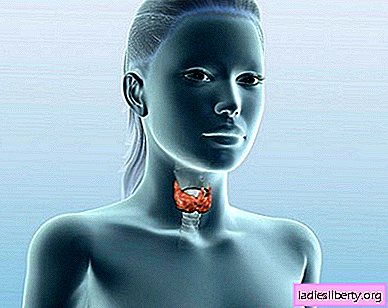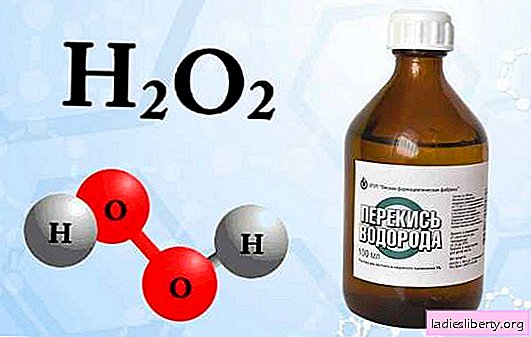
Thyroiditis (Autoimmune thyroiditis) is an inflammation of the thyroid gland leading to the formation of antibodies and lymphocytes in the body that begin to conflict with the cells of their thyroid gland, resulting in the death of the gland cells. This disease is diagnosed in people of the middle age group (40-50 years), although, according to statistics, in recent years, thyroiditis is more often manifested in young people, sometimes in children.
Autoimmune thyroiditis is divided into several diseases:
- Chronic thyroiditis (Hashimoto's autoimmune thyroiditis) develops due to a sharp increase in antibodies, as well as a special form of lymphocytes that destroy thyroid cells. This leads to a sharp decrease in the amount of hormones produced by the thyroid gland. The disease has a distinct genetic form.
- Postpartum thyroiditis is more common than others. The disease occurs due to overload of the body during pregnancy and in cases of existing predisposition.
- Painless (silent) thyroiditis is an analogue of postpartum, however, to date, the cause of its appearance has not been identified.
- Cytokine-induced thyroiditis occurs in patients with a diagnosis of Hepatitis C or with blood diseases, if the treatment was carried out with interferon.
Thyroiditis - causes
Despite the genetic predisposition, there are additional factors that provoke thyroiditis:
- acute respiratory infections;
- negative environmental impact, excessive consumption of chlorine, iodine and fluorine in food and water;
- foci of chronic diseases (in carious teeth, palatine tonsils, in the sinuses);
- Stressful situations;
- radiation exposure or prolonged exposure to the sun;
- uncontrolled intake of hormonal and iodine-containing drugs;
Thyroiditis - Symptoms
In most cases, the disease proceeds quite imperceptibly, without characteristic symptoms. Very rarely, the patient complains of light fatigue, joint pain, weakness and discomfort in the place of the thyroid gland - a lump in the throat and a feeling of pressure.
Postpartum thyroiditis is manifested by fatigue, severe weakness and weight loss. Sometimes a malfunction in the thyroid gland causes tachycardia, a feeling of heat, excessive sweating, insomnia and mood instability.
Cytokine-induced thyroiditis practically does not affect the patient's well-being. You can identify it exclusively with the help of analyzes.
Painless (silent) thyroiditis is characterized by mild thyroid dysfunction.
Thyroiditis - diagnosis
Until the thyroid gland malfunctions, which can be detected by analysis, the disease is almost impossible to diagnose. Only laboratory tests can establish the absence (or presence) of thyroiditis. Laboratory studies include:
- general blood analysis;
- an immunogram;
- determination of the level of thyroid-stimulating hormone in the blood serum;
- fine needle biopsy;
- Ultrasound of the thyroid gland;
If even one of the signs of the disease is absent in the research results, then autoimmune thyroiditis cannot be diagnosed. Suspicion of a change in the gland on an ultrasound scan is not evidence of the manifestation of the disease, if other tests do not provide a basis for such a conclusion.
Thyroiditis - treatment and prevention
There are currently no effective treatments for thyroiditis. In the case of the thyrotoxic phase of the disease, that is, the appearance of thyroid hormones in the blood, it is not recommended to prescribe medications that suppress the activity of the thyroid gland (propicyl, tiamazole, carbimazole).
If a patient with thyroiditis has cardiovascular system disorders, then beta-blockers are used for treatment. When subacute thyroiditis (inflammation of the thyroid gland) occurs, non-steroidal anti-inflammatory drugs (methindol, voltaren, indomethacin) are used. In case of a sudden increase in the size of the gland, surgical intervention is recommended.
When detecting thyroiditis, which proceeds without obvious violations in the thyroid gland, the patient should be under constant medical supervision to promptly diagnose and begin treatment of manifestations of hypothyroidism (a decrease in the hormones produced by the thyroid gland).











